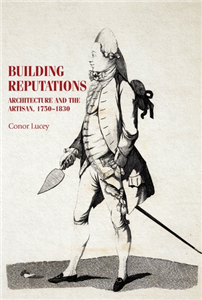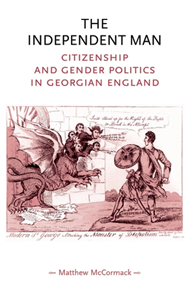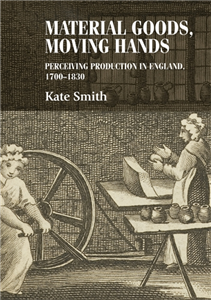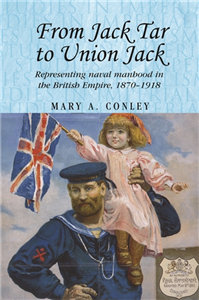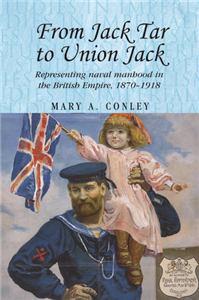Your Search Results
-
Mediendesign Dr. Georg Hauptfeld GmbH Edition Konturen
We are publishing book about the central questions of our culture in politics, philosophy, art and history.
View Rights Portal
-
Promoted ContentHumanities & Social SciencesMarch 2017
From Jack Tar to Union Jack
Representing naval manhood in the British Empire, 1870–1918
by Mary A. Conley
Jack Tar to Union Jack examines the intersection between empire, navy, and manhood in British society from 1870 to 1918. Through analysis of sources that include courts-martial cases, sailors' own writings, and the HMS Pinafore, Conley charts new depictions of naval manhood during the Age of Empire, a period which witnessed the radical transformation of the navy, the intensification of imperial competition, the democratisation of British society, and the advent of mass culture. Jack Tar to Union Jack argues that popular representations of naval men increasingly reflected and informed imperial masculine ideals in Victorian and Edwardian Britain. Conley shows how the British Bluejacket as both patriotic defender and dutiful husband and father stood in sharp contrast to the stereotypic image of the brave but bawdy tar of the Georgian navy. This book will be essential reading for students of British imperial history, naval and military history, and gender studies.
-
Promoted ContentHumanities & Social SciencesOctober 2017
Siblinghood and social relations in Georgian England
by Amy Harris
-
 Trusted Partner
The ArtsSeptember 2021
Trusted Partner
The ArtsSeptember 2021Building reputations
Architecture and the artisan, 1750–1830
by Conor Lucey
Taking a cue from revisionist scholarship on early modern vernacular architectures and their relationship to the classical canon, this book rehabilitates the reputations of a representative if misunderstood building typology - the eighteenth-century brick terraced house - and the artisan communities of bricklayers, carpenters and plasterers responsible for its design and construction. Opening with a cultural history of the building tradesman in terms of his reception within contemporary architectural discourse, chapters consider the design, decoration and marketing of the town house in the principal cities of the eighteenth- and early nineteenth-century British Atlantic world. The book is essential reading for students and scholars of the history of architectural design and interior decoration specifically, and of eighteenth-century society and culture generally.
-
 Trusted Partner
Humanities & Social SciencesJanuary 2012
Trusted Partner
Humanities & Social SciencesJanuary 2012The independent man
Citizenship and gender politics in Georgian England
by Matthew McCormack, Pamela Sharpe, Penny Summerfield, Lynn Abrams, Cordelia Beattie
'Independence' was an important ideal for men in Georgian England. In this period, however, the word meant much more than simply the virtues of self-sufficiency and impartiality. Most people believed that obligations absolutely compromised freedom and conscience, whereas 'independence' was associated with manly virtue and physical vigour. Fundamentally, the political world was thought to consist of 'independent men', exercising their consciences and standing up for the general good. As such, Georgians thought about political action and masculine virtue very differently to the ways in which we do today. In study, newly available in paperback, Matthew McCormack establishes the links between the histories of masculinity and politics, highlighting the centrality of 'manly' ideals in the political world and - conversely - the role of politics in the operation of gender ideology. ;
-
 Trusted Partner
Trusted Partner
-
 Trusted Partner
Trusted Partner
-
 Trusted Partner
Humanities & Social SciencesOctober 2022
Trusted Partner
Humanities & Social SciencesOctober 2022Germany's Russia problem
The struggle for balance in Europe
by John Lough
The relationship between Germany and Russia is Europe's most important link with the largest country on the continent. But despite Germany's unparalleled knowledge and historical experience, its policymakers struggle to accept that Moscow's efforts to rebalance Europe at the cost of the cohesion of the EU and NATO are an attack on Germany's core interests. This book explains the scale of the challenge facing Germany in managing relations with a changing Russia. It analyses how successive German governments from 1991 to 2014 misread Russian intentions, until Angela Merkel sharply recalibrated German and EU policy towards Moscow. The book also examines what lies behind efforts to revise Merkel's bold policy shift, including attitudes inherited from the GDR and the role of Russian influence channels in Germany.
-
 Trusted Partner
History of art & design styles: c 1600 to c 1800October 2014
Trusted Partner
History of art & design styles: c 1600 to c 1800October 2014Material goods, moving hands
Perceiving production in England, 1700–1830
by Kate Smith
In eighteenth-century Britain, greater numbers of people entered the marketplace and bought objects in ever-greater quantities. As consumers rather than producers, how did their understandings of manufacturing processes and the material world change? Material goods and moving hands combines material culture and visual culture approaches to explore the different ways in which manufacturers and retailers presented production to consumers during the eighteenth century. It shows how new relationships with production processes encouraged consumers, retailers, designers, manufacturers and workers to develop conflicting understandings of production. Objects then were not just markers of fashion and taste, they acted as important conduits through which people living in Georgian Britain could examine and discuss their material world and the processes and knowledge that rendered it.
-
 Trusted Partner
Literature & Literary StudiesDecember 2000
Trusted Partner
Literature & Literary StudiesDecember 2000Contemporary British poetry and the city
by Peter Barry, Kim Latham
Though poets have always written about cities, the commonest critical categories (pastoral poetry, nature poetry, Romantic poetry, Georgian poetry, etc.) have usually stressed the rural, so that poetry can seem irrelevant to a predominantly urban populati. Explores a range of contemporary poets who visit the 'mean streets' of the contemporary urban scene, seeking the often cacophonous music of what happens here. Poets discussed include: Ken Smith, Iain Sinclair, Roy Fisher, Edwin Morgan, Sean O'Brien, Ciaran Carson, Peter Reading, Matt Simpson, Douglas Houston, Deryn Rees-Jones, Denise Riley, Ken Edwards, Levi Tafari, Aidan Hun, and Robert Hampson. Approaches contemporary poetry within a broad spectrum of personal, social, literary, and cultural concerns. Includes 'loco-specific' chapters, on cities including Hull, Liverpool, London, and Birmingham, with an additional chapter on 'post-industrial' cities such as Belfast, Glasgow and Dundee. ;
-
 Trusted Partner
Humanities & Social SciencesFebruary 2009
Trusted Partner
Humanities & Social SciencesFebruary 2009From Jack Tar to Union Jack
Representing naval manhood in the British Empire, 1870–1918
by Andrew Thompson, Mary A. Conley, John Mackenzie
Jack Tar to Union Jack examines the intersection between empire, navy, and manhood in British society from 1870 to 1918. Through analysis of sources that include courts-martial cases, sailors' own writings, and the HMS Pinafore, Conley charts new depictions of naval manhood during the Age of Empire, a period which witnessed the radical transformation of the navy, the intensification of imperial competition, the democratisation of British society, and the advent of mass culture. Jack Tar to Union Jack argues that popular representations of naval men increasingly reflected and informed imperial masculine ideals in Victorian and Edwardian Britain. Conley shows how the British Bluejacket as both patriotic defender and dutiful husband and father stood in sharp contrast to the stereotypic image of the brave but bawdy tar of the Georgian navy. This book will be essential reading for students of British imperial history, naval and military history, and gender studies. ;
-
 Trusted Partner
Humanities & Social SciencesJanuary 2017
Trusted Partner
Humanities & Social SciencesJanuary 2017From Jack Tar to Union Jack
Representing naval manhood in the British Empire, 1870–1918
by Andrew Thompson, Mary A. Conley, John M. MacKenzie
Jack Tar to Union Jack examines the intersection between empire, navy, and manhood in British society from 1870 to 1918. Through analysis of sources that include courts-martial cases, sailors' own writings, and the HMS Pinafore, Conley charts new depictions of naval manhood during the Age of Empire, a period which witnessed the radical transformation of the navy, the intensification of imperial competition, the democratisation of British society, and the advent of mass culture. Jack Tar to Union Jack argues that popular representations of naval men increasingly reflected and informed imperial masculine ideals in Victorian and Edwardian Britain. Conley shows how the British Bluejacket as both patriotic defender and dutiful husband and father stood in sharp contrast to the stereotypic image of the brave but bawdy tar of the Georgian navy. This book will be essential reading for students of British imperial history, naval and military history, and gender studies.
-
 Trusted Partner
The ArtsMay 2011
Trusted Partner
The ArtsMay 2011Performing Herself
Autobiography and Fanny Kelly's Dramatic Recollections
by Gilli Bush-Bailey, Kate Dorney, Maggie B. Gale
This unique book contains the never before published script of the first ever one-woman show, written by Fanny Kelly. The script was performed in Britain in the 1830s and 40s, based on Kelly's own experiences and offers a picture of the exuberant and often bizarre Georgian entertainment world. The performance text is introduced, edited and explained by Gilli Bush-Bailey, who focuses 21st-century revisionist scholarship on Kelly's story. It is an innovative contribution to the modern debate on biographical and autobiographical writing, whilst also being a valuable text for those who wish to study comedy and women's performance. The materials and methods of the modern stand-up routine are already to be seen in this unusual text. This book will appeal to students and scholars who are involved in performance, theatre history, or biography. It is also an accessible text for the interested general reader. ;
-
 Trusted Partner
Trusted Partner






